1st: To do the ollie (the basic and, according to many, the simplest of tricks) follow these steps. Put your front foot across the middle of the board. Your back foot is in the center of the tail. The tail of the board extends from the back truck to its rear end while the nose of the board extends from the front . . .
HE IS SEVENTEEN. A FREE ENTITY of a six-and-something million New Manhattan population, panicky in their effort to keep up with the time and catch a break in short nightly intervals before the challenges of a new day. The fact that it is summer is of no importance to anyone. The pulse of New York City continues to beat in its wild, crazy, and exhausting way.
He is young, very young. Healthy, too, except for a swollen lip and a bruised eye. His face will soon become a specimen of various colors. That doesn’t concern him much because he must think about other things. More important than just the one bruise.
The afternoon he finds himself in is sunny, but chilly—a story of this summer. This summer is cold, the coldest in this century. New Yorkers have already come up with a name for it.
Cruel summer.
Cruel summer, Michael thinks, shaking with cold. His washed-out T-shirt, over which he had pulled only a hooded sweatshirt with a drawing of a grinning skeleton printed above the sign Blind, is doing a poor job in keeping him warm. If someone asked him, he wouldn’t hesitate to take that pathetic sun out of the sky with one shot.
Or rather those who made it so . . . uneconomic.
This time, too, the main, alternative energy source dries up insidiously, opening the door wide to a new wave of pollution and new atmospheric changes.
A new climate disorder.
Michael grimaces. He imagines the reaction of the mayoress of the largest metropolis in the world, with hundreds of thousands of households reaching for heating in the middle of August, causing an overload of the power grid and triggering a new chain reaction of chaos.
Like he cares about it! He is not the Greenpeace green.
But the grass he stands on is green. Although slightly bitten by the morning frost. A perfect setting for his gloomy feelings and depressing thoughts.
The cemetery is empty and quiet, and it looks rather sad. Who would have thought of stumbling into a place like this during the biggest hustle and bustle of the city? Who but its tenants, perhaps some homeless people, thieves, human organ snatchers, or necrosadists . . . ?
Or maybe Michael.
Michael looks down from the sky wrapped in a haze of various vapors and particles of dubious origin. He stares blankly and seemingly absentmindedly at the marble tombstone in front of him. Elegant, not big, but enough to have the names of spouses with their birth and death years. And their children—assuming they will want it and that the rivers of life will not take them to other places.
Nothing more. Humble and simple. That’s what Michael’s mother wanted. Michael’s father didn’t object. Michael knows his reasons: Hank doesn’t like to spend money on unimportant things. But this is another story that never questioned the greatness of Hank’s love for his late wife. Michael is a living witness to this, isn’t he?
Melanie Hope Daniels.
Melanie Hope Daniels—gold lettering carved in white marble.
A face surrounded by an aura of tenderness. Forgiveness. Compliance.
Modesty.
Modesty.
It was his mother, a self-effacing look full of love.
That’s all Michael has from her now, with the promise he’d given her before she passed away: he will look after his sister and keep an eye on her.
Melanie Hope had high hopes for him, in reality still a boy. She believed in the power that lies behind his casualness, seeming disinterest, and defiant rebellion. She believed the contempt in his eyes with which he looks upon most of the world around him. She put her hopes in a “rebel without a cause” in a world that offers thousands of reasons for rebellion, into an unhappy child to whom even the unconditional maternal love has not dulled the blade of the evil fate of birth.
(Wrong place? Wrong time? Who would know?)
The mother’s vision slowly fades, devoured by the cold marble.
The world is at its end. Or is it the beginning of something new?
Hope is dead. What will tomorrow’s dawn look like? Toward the end of the millennium.
“Mother,” Michael says dreamily.
One word. One sigh.
A warm cloud swallowed with haze. And grayness. In the city of light, money, success, and synthetic kitsch. That’s how Michael experiences it—the intersection of contradictions and unimaginable extremes.
Yet . . .
. . . yet he still loves it in some bizarre way and still doesn’t leave its harbor in search of a better life in the Old World. He has three good reasons for this. Three good reasons that still keep him here. For now.
The first lies at his feet; the second enjoys the blessings of school vacations in the wilds of Colorado; and the latter, though no less important, patiently waits for Michael to turn his attention to it. That’s exactly what he does.
Leaving a fresh imprint in the damp earth, Michael takes his skateboard, adjusts a Creature flex fit baseball full cap all the way to his eyes, and sets off.
Toward the streets he will storm through. Toward the asphalt that will rattle under his wheels.
Thuuunderooously!
* * *
The apartment welcomes him in silence. Desolate and cold. Elegant, too big and too comfortable, equipped with state-of-the-art home appliances—a poor substitute for what his father didn’t provide him.
But he leaves him a full refrigerator with a message, a magnet pinning it to the glittering, ice-blue door: I’m afraid I won’t be home until late at night. Have dinner without me. Don’t wait for me. I’ll eat something at work. SURPRISE me and come home before the small hours. I should talk to you. I really should talk to you about something. Dad.
Instinctively, Michael touches his chapped lip as if trying to protect himself from the new pain. But the pain erupts again, accompanied by a torrent of boy’s curses. You can bet we’ll have something to talk about!
He washes his hands and face, but doesn’t change into other clothes. He doesn’t intend to stay long. Any longer than he should.
He pulls out a handful of ice cubes from the freezer and presses the cold compress on his face. Guys will tease the hell out of him when they see an ugly swelling. But Michael isn’t in the mood for buffoonery and ridicule today. He feels lonely, his ships sunken and vulnerable. Rebecca’s departure has affected him more than he is ready to admit.
The richness of colors, smells, and flavors overwhelm him when he opens the fridge. The rogue and the starving would have killed for this moment, illuminated by the light bulb. Suddenly, he is disgusted with the sight of so much food, and Michael gives up the sandwich his stomach is craving for. With deep regret he says no to ham from some of the genetic engineering farms.
(What would his father think if he learned that his own children are boycotting what he is doing for a living?)
Sighing deeply, he grabs the carton of milk and slam shuts the refrigerator door with his foot.
(That is what Michael thinks of his father’s important work.)
He pours cold milk into a plastic bowl, stuffs it with strawberry-flavored cornflakes, and coats it with an excessively thick layer of brown sugar. Positioning himself in front of the big plasma TV, he sets to dinner.
Nervously changing programs at the pace of the snack, he is looking for something worth fifty dollars a month. Nothing interesting. A pile of garbage. Only the propaganda. Obvious and transparent lies. Old and repeatedly watched films.
Across the satellite, he runs into MC Solaar. Delighted by the unexpected luck, he summons his hologram, but his mood quickly fades with the first beats of the old hit of the Backstreet Boys. Quit playing games with my heart! Michael yells back and turns off the screen. He cannot understand how his sister can listen to such music.
He stops eating for a moment, his mouth still full of personally prepared mash and saliva. He can feel the flakes dissolve in his mouth, the sugar melting. Each cell of his body fills with a sweet strawberry flavor, irresistibly dragging him to his grandparents’ ranch.
His sister’s presence and closeness are more real than illusion. It is as if he has fallen into one of the games of virtual reality. Everything else is lost except that experience.
Rebecca is in a greenhouse, a large dome in the backyard of the estate. The air is saturated with sweet scents, and Michael unconsciously wrinkles his nose. The sight of Rebecca picking flowers catches his attention. Without a doubt, yellow roses will adorn the table tonight. Roses yellow like the sun. Roses yellow like ripe corn. Yellow like summer.
A cruel summer.
That brings him back to reality. Into the chilly Greenwich Village, into a world of bohemians, artists, and streets swarming with all kinds of couples. Preoccupied with thoughts, he finishes the simple dinner.
For years, Michael questioned his mom why they were not moving out of this neighborhood, but he never got an answer that would satisfy his boyish curiosity. Melanie Hope did not know how to offer him the reason why they did not move, and this began to confuse him.
(Maybe she liked it here? Maybe she didn’t mind male and female couples holding hands? Maybe she had more liberal views than him? Not really. Not his mother.)
He didn’t ask his father about it. He never asked Hank about such things. In fact, Hank and Michael never talk seriously. Intimacy is a stranger to them, something alien, at least when they need to tell each other something.
Michael doesn’t love his father. Nor does he respect him. Michael isn’t sure if his mother was aware of the cold between them. But in reality, he doesn’t hate Hank, except when the two of them get into a fight and there is a physical altercation. Michael couldn’t stand it. He couldn’t bear his father to touch him. So he avoids him whenever possible. That is how the streets of New York became his second adopted home.
Michael considers Hank a sick and disturbed person. A very sick person. And for that reason he doesn’t hate him. Whenever Hank becomes unpleasant, Michael suppresses his true feelings and allows pity to overwhelm him. It isn’t easy, but in a way, Michael feels sorry for him. But nothing more than that. This is as far as he could and is ready to go.
If Melanie Hope knew of Hank’s dark side, Michael couldn’t know for sure. But she was his wife, which is why she must have sensed how unpleasant Hank could be.
And Hank knew how to be unpleasant.
Very unpleasant.
Is that why she asked her son for a favor before she succumbed to pneumonia? Is that why she asked him to look after their treasure: a girl they both loved unconditionally and equally sincerely? Perhaps Melanie Hope knew, after all, that Hank was not capable of such love?
Taken aback by the sudden onset of feelings, Michael loses his appetite. The pain is back again, both mental and physical.
He takes his unfinished dinner to the kitchen and then, like a sleepwalker, heads to the bathroom and finds painkillers in his father’s cabinet. He shakes two Darvocets out of the bottle and washes them down with tap water, then he repeats the whole process once more. His confidence returns, though not completely.
Urged by the overwhelming desire to call Denver, he drags himself into his father’s study room and greets the electronic pet on his father’s desk.
“Sergio Unit, please connect me with Denver, Colorado, the Creeks’ Ranch.”
Tapping his fingers on the polished surface of the desk, he waits for the Sergio Unit to digest the information.
“I am sorry, Michael. The number you requested is currently unavailable. Would you like me to try again?” the electronic voice answers.
(They are not in the house. They’re probably in the greenhouse, or maybe in the barn. Or they went shopping.)
“No need, Sergio Unit. Thank you. Disconnect.”
The screen dims and Michael heads to his room to retrieve his backpack. He checks out its contents: Rimbaud’s Collected Poems, as well as a French-English, English-French Pocket Dictionary and a Light-Cola, half-liter bottle refilled with fresh water are already in it.
Then he slides into the Alphanumeric windbreaker, tosses his backpack onto his back, and grabs a skateboard.
Before going out, he checks his appearance in the mirror once more. He isn’t too crazy about the reflection staring back at him, but there is nothing he can do about it. After all, skateboarding accidents happen every day, and who cares?
Pulling the door behind him, he locks it well.
* * *
Rebecca abruptly reins in the horse. The ranch is right in front of her, down a gentle slope a little to the left. A lovely little, fairy-tale place, basking in the cold sun. If she galloped at it at this speed, her grandma would be terrified, and she would force her grandpa to forbid her to ride before she breaks her neck. But that won’t happen, Rebecca knows. She knows her grandpa well and his mysterious smile that flashes with pride every time he sees her riding.
He would forgive her immediately, she is sure.
Such is her grandpa. An aging image of her mother, who didn’t live long enough to enjoy her own grandchildren.
Rebecca’s vision blurs. She blinks away the tears. Here, in the wild, no one will see her if she cries. But then again, if she lets her feelings take hold of her, if she lets herself cry . . . No, that won’t be good. She knows it would be a relief for Michael and Hank to see her cry; she had not shed a single tear since her mother’s death. At least not in front of them. Therefore, they would greet her tears with great relief, because that means that she is okay. But that’s not how Rebecca expresses her feelings. She is a Daniels, after all.
The air smells of summer mixed with the fresh breath of winter. A strange combination.
Rebecca’s riding hat lies still on her back, her thick, blonde hair glistening with the illusion of a fragile aura as her blood runs hot beneath a warm, faux-leather jacket, soaking her sweaty, plaid shirt. And the temperature keeps falling and approaching the freezing point.
Today, Rebecca and her mare have traveled a good chunk of the way. Vanity is in a great mood and in even better shape than Rebecca. She obeys all of Rebecca’s orders, for which she will be abundantly rewarded.
Rebecca pats her neck gratefully, to which Vanity replies with a cheerful whinny. Rebecca clicks her tongue twice and allows her to go pick up her prize.
* * *
House. Home. Hearth.
The divided sense of belonging that has caused confusion in Rebecca’s head since her mother died.
New York—Denver. House—home. Hearth?
(Or the other way around?)
She lives in New York; loves being in Denver. Not far from the Ken Caryl Ranch, fifteen miles southwest of Denver. Rebecca adores her grandpa and grandma, but she never stopped thinking about her father and brother who had stayed there since she left New York. Especially about her brother. She also knows that when she returns to New York (too soon, much too soon, very much too soon), her heart will turn into an ocean of sadness that she had to leave her grandparents. That’s how it was last year, that’s how it was the year before. This year it will be even harder.
Because her mother won’t be there to ease her the pain of parting.
(What remains of her consolation? What remedy to cure the pain?)
“Time heals everything,” Grandma told her as she cried, her beautiful head resting in Grandma’s lap. “And the rare moments of joy from which we emerge as winners become our signposts on the road of life.”
But how many of these signposts will there be? How many clear ones? And how many times will we stray . . . lost in the jungle of life?
With the strength of her willpower, Rebecca shakes off the black thoughts. A car is parked in front of the house and it is just leaving. A black Lincoln Navigator, Rebecca recognizes it under a thick layer of dried earth and mud. She nods in greeting to the two men behind the dirty windshield and they nod to her in return.
Reaching the barn, she slides out of the saddle and takes Vanity into the barn. A familiar neighing welcomes her. It is Grandpa’s black Darkfall and Vanity’s mother, Josephine.
After taking care of her four-legged friend, Rebecca walks across the yard to the house. Not forgetting Vanity’s prize—a handful of sugar.
“Who was that?” she asks her grandfather from the door, interrupting him in preparing an early dinner.
“Rebecca! Hello! I didn’t hear you come in.”
“I’m sorry. I didn’t mean to scare you. You okay?”
“Sure, my child! How was the ride? It seems to be quite a long one. But is it wise considering you two haven’t seen each other for a long time?”
“I know, Grandpa. Thanks for worrying, but it was great! Vanity was happy to see me again. You are not angry with me, are you?”
“Do I look angry?”
With the mound of chopped potatoes lying in front of him on the table and the sharp knife he holds upright like a flag, he looks anything but angry.
Rebecca smiles back at his smile and funny look.
“You had a visit?” she repeats her question.
He doesn’t look up.
“Black Lincoln? Navigator?” Rebecca continues, not giving up.
Jeremy Creek puts the potatoes in the oven and takes a long look at his granddaughter.
“An old model, but well preserved? I met it about twenty minutes ago.”
“Yes? What about it?”
“Who was that?”
“The Atkinses.”
“The Atkinses and? Surely you know something else about them?”
Another smile flashes over Jeremy Creek’s face, then disappears. He’s trying to be serious.
“They’re our new neighbors,” he answers casually.
“Your new neighbors? You didn’t tell me anything about having new neighbors.”
“There was nothing to tell. They only moved in two months ago.”
“Where are they from?” She grabs a raw carrot from the huge table in the middle of the kitchen and bites into it. The taste of the food, even raw, reminds her how hungry she is.
“From Texas. At least, that’s what they told us.”
“Don’t you know?”
“My child, it is not polite to stick your nose where it does not belong. Plus, I don’t care where they’re from as long as they’re okay and mind their own business.”
Rebecca swallows the rest of the carrot and gives him her best disarming smile.
“Is it rude to ask what they wanted?”
“That is not rude.” He struggles to remain serious. “They came to ask if we could sell them some vegetables to replenish the vegetable garden. The frost has destroyed everything.”
“I see. And you, of course, sold them vegetables.”
“I did, but I also gave them some. Otherwise, they would take nothing.”
“Where’s Grandma?” Rebecca changes the subject.
“I think she’s in the greenhouse . . .”
“Good. I was going there anyway. I should pick some flowers for dinner.”
“Uh-huh, yes. That’d be nice.”
“Grandpa, why didn’t you invite them to stay for dinner?” Rebecca asks him from the door. “Just to get to know each other better?”
She then disappears without waiting for his answer.
* * *
Warmth. Dampness. Scents. Colors. Attacking Rebecca’s senses with full force as she enters the greenhouse. A transparent, crescent moon, as she likes to call it.
She left her jacket in the house and her grandmother, of course, doesn’t miss it. She reprimands her for being so careless and softens only when Rebecca hugs her and places a wet I-love-you-Granny kiss on her slightly wrinkled cheek. As much as she tried, Elisabeth Creek wasn’t immune to her granddaughter’s charm.
Walking among the flower beds, Rebecca tries to come up with a logical explanation of what she had forcibly pulled out of her grandmother before she disappeared from the greenhouse. What ought to be logical is sagging under the weight of the illogical and eventually mixes in one sound burst of colors, voices, scents, and beliefs.
Rebecca closes her eyes before the sudden onset of dizziness. When she opens them again, she sees a yellow rose bush in front of her.
(She succumbed again. She gave in again. She couldn’t resist them again—her beautiful yellow roses.)
Yellow like the summer. Yellow like the sun.
Picking up the flowers and putting them in the basket, she feels anger build up in her. Anger begins to flow in her like the tide of a cold ocean she doesn’t know how to stop.
That surprises her. She doesn’t have the slightest reason to be angry because she doesn’t know the Atkinses. Yet she cannot handle it. (This is not science fiction like the Star Wars Trilogy, which, in anticipation of the premiere screening of the first episode The Phantom Menace, is once again filling up New York theaters.) She has to find out the truth. And there is only one way to do this.
The roses are picked and their intoxicating scent fills Rebecca’s lungs. It is the scent of love, and it makes Rebecca cry from it.
Inside her, a void opens which grows more and more. Lamenting for lost words and erased civilizations, people she misses so much.
Those who are gone forever. (Mother!)
Those who threaten to disappear. (Michael! Father!)
She hurries out of the transparent, crescent moon toward the house, toward the computer that monitors Creek’s estate, her only connection to New York.
Cruel Summer follows a whole slew of people as they take us on a journey through their lives and all of their ups and downs, mostly downs. I enjoyed following each character and learning about their lives and stories although some of them were very sad. Cruel Summer kept me on the edge of my seat as I watched and waited to see how each of these characters' lives was going to interact and or intertwine.
Cruel Summer follows one character Michael who wants nothing more than just to skateboard for a few years before going to college and starting a career. Michael’s story was a sad one. Michael lost his mother a while back and his sister had moved away leaving him home alone with a very abusive stepfather. Michael hid his abuse well or at least tried to but he didn’t count on his two best friends paying more attention to him than he knew.
Cruel Summer follows several different characters each unique in their own way. Each had a heart of gold. Well, most did, some did not of course. Cruel Summer explores more than one kind of love and relationship. There was the love a boy had for his grandmother. The love between friends and siblings and how far each would go to protect the other.
Cruel Summer is a story that will break your heart. It is a story that will draw you in from the beginning and keep you hanging on as you travel down one suspenseful road after another just trying to figure it all out. Cruel Summer kept me in suspense from page one with quite a few twists. There was this one Easter egg that made me think oh that is sick and so wrong on so many different levels.
I highly recommend Cruel Summer but with a warning as there is sexual abuse.
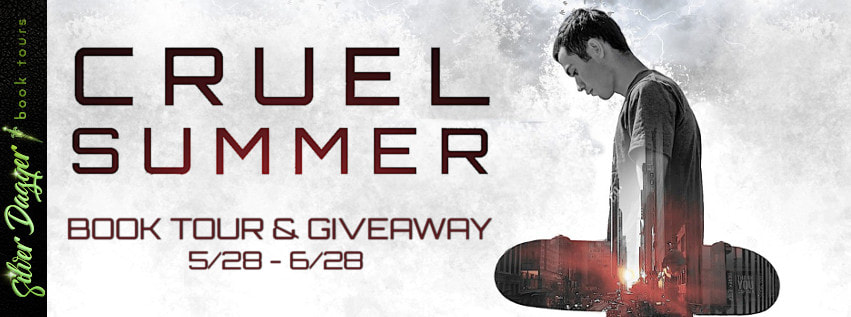
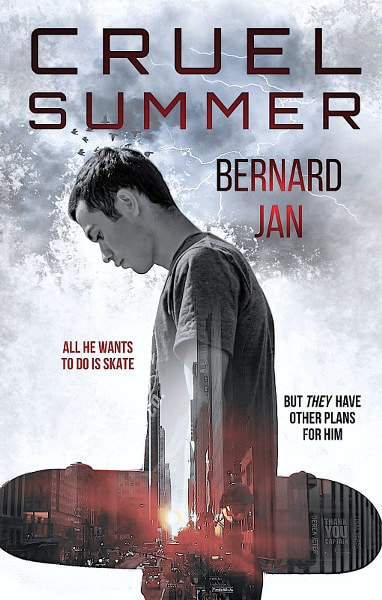





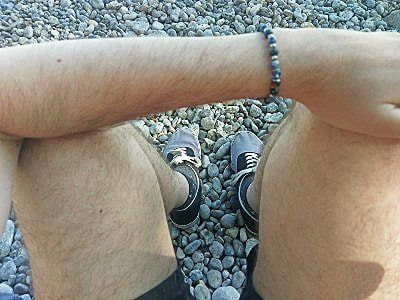



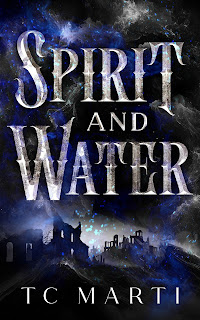




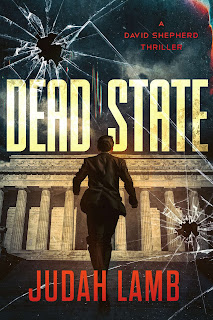




































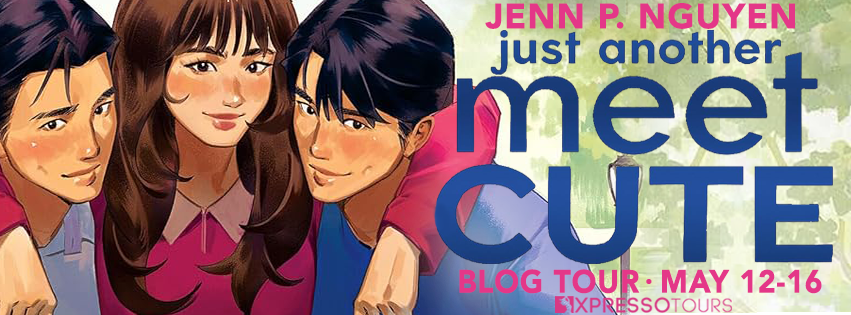











.jpg)










3 comments:
Thank you very much for your awesome honest review and for hosting my book Cruel Summer, Nancy!
Bernard Jan
nice cover
Nice blog!!! Great Work!!! Keep it up.
AVG PC TuneUp Key
Smadav Pro Crack
Post a Comment